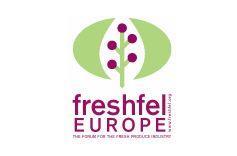
Freshfel Europe has called on European authorities to 'vigorously oppose' the Russian ban on EU fresh vegetable imports, put in place in the wake of the recent E.coli scare in Europe, and has urged the country to remove restriction without further delay.
Speaking out ahead of the two-day EU-Russia summit, which takes place in Nizhny Novgorod on 9-10 June, the association said that the current measures imposed by Russia are disproportional, and are having a major impact on what it called a well-established business during a time of 'severe crisis'.
Reacting to the outbreak at the end of May, Russia imposed a ban on imports of raw vegetables – tomatoes, cucumbers and lettuce –produced in Germany, before extending this ban to all vegetables produced in the EU on 2 June. This ban was then extended to berries on 3 June, Freshfel noted.
'The current measures imposed by the Russian Federation are disproportional and should be lifted at the earliest,' said Philippe Binard, general delegate at Freshfel. 'Indeed several well-founded arguments are supporting the position of the European fresh produce sector.'
While the source of the E.coli outbreak has not yet been identified, the outbreak itself is believed to have a limited geographical outreach, limited to an area surrounding the city of Hamburg in Germany, as has been stated by European health and consumer commissioner John Dalli.
Freshfel pointed to the fact that no member state has introduced restrictions on the free circulation of fresh vegetables in the EU, the removal of the EHEC notification in the European Rapid Alert System for fresh vegetables, and numerous negative samples taken by public authorities and the fresh produce sector itself on fresh vegetables.
'All the implemented measures are strong arguments to get confidence in the quality of EU vegetables supplied to the Russian market,' Binard explained. 'Moreover, at a time the Russian Federation is negotiating its accession to the World Trade Organisation, this ban could be questionable with regards to the principles set by the WTO/SPS agreement.'
The Russian ban is affecting a well-established European business, Freshfel noted, with European vegetable sourcing representing one-third of total Russian imports, coming in at 1.1m tonnes (€580m) last year.
'The European fresh produce sector considers the current ban introduced by the Russian Federation as a disproportionate trade distortion,' added Ramon Rey, president of Freshfel Europe. 'The EU should on the occasion of the forthcoming bilateral summit vigorously oppose the ban and call upon the Russian Federation to remove restrictions without further delay. In these days it is of paramount importance that all actions taken remain proportional.'



